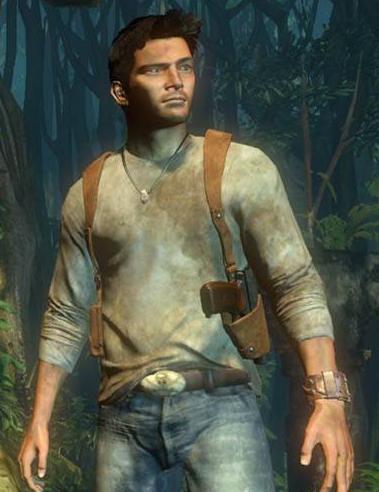The games industry is a very fast changing industry. Because
it is relatively new compared to other entertainment industries, for example,
the film industry, it is constantly shifting. The technology used to create
games has gone from very basic 3d models to the high poly models that we have
today in the space of my lifetime, and shows very little signs of slowing down.
Because the industry is growing so quickly, it means new job
roles are being created. In the past, a very small team of people worked on
games. For example, two people, Nolan Bushnell and Ted Dabney, created pong,
which was a very early game . Now big budget games often have hundreds of
people working on them. For example, the games developer Naughty Dog employs
over 170 people. However, this company was started by just two people, Jason
Rubin and Andy Gavin. The job roles that
people have has also become more specialised. There was a time where the
programmers would make all the graphics themselves and the role we are training
for didn't exist.
An exception to this could be the growing amounts indie game
developers. They usually have smaller teams, with people taking on multiple
roles. The internet has helped greatly with this, as it allows small developers
to promote their games to a wider audience. The finished game can also be made
available for download, which cuts down the cost of distribution and allow more
people to get a copy of their game. An example of this is mine craft, which was
originally made by one person, Markus Persson, and later expanded to a larger
team . Also, the wide spread use of smart phones has lead to more mobile games,
which has been great for smaller developers as these games are smaller and do
not require such a large team to produce.
Because of the size of games, some companies use outsourcing
. The definition of this is
'Outsourcing is any task, operation, job or process that could be
performed by employees within an organization, but is instead contracted to a
third party for a significant period of time.' This is used because outsourcing
companies are often in countries outside of Europe and north America, so it
costs less. They are often used on big projects were lots of assets need to be
made. However, some people are afraid that outsourcing limits the jobs
available to game artists in the uk, as
it is cheaper to outsource a lot of assets. On the other hand, it is often
difficult to tell what you might get back; the benefits of having a team in one
place can't be under estimated, as it makes it a lot easier to communicate
between people and make sure that everyone is on the same page.
Because the industry changes so quickly, it is difficult to
be able to predict what will happen in the next ten years or so. More and more
specialised jobs may be created as games get bigger, or it may be that smaller
teams will become more predominate, with employees taking on multiple roles.
Personally, because of this, I don't think it is a good idea to become too
specialised while working on this course, as you never know what developments
might happen in the future or what jobs will be available.
http://operationstech.about.com/od/glossary/g/Outsourcing.htm
http://en.wikipedia.org/wiki/Pong
http://en.wikipedia.org/wiki/Minecraft#Development


No comments:
Post a Comment